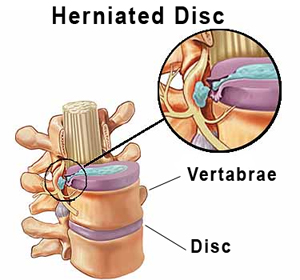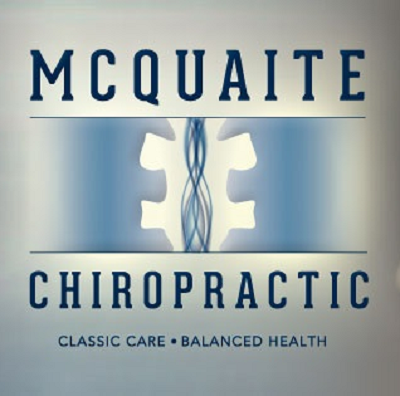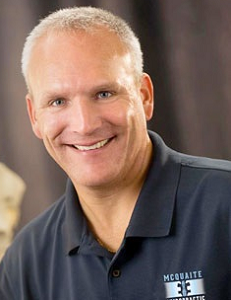
Herniated Disc: Definition, Symptoms and Causes
Back pain can hit at the most random times. You bend down to pick up your dog’s leash and wham! You’re clutching your back in pain.
Could it be a herniated disc? Maybe. Also known as a slipped or ruptured disc, if these discs crack open they can spill their gooey substance, hit the nerves and cause you to grimace in pain.
You probably kow your spinal cord runs from the base of your spine to your neck. You may also know 24 bones known as vertebrae form your spine with flexible discs that fit in between the bones in your spinal column.
Filled with a jelly like substance, the flexibility of the discs help you bend, wiggle, run, dance, and do all the things people want to do that require flexibility.
However, when a disc shifts out of place or ruptures and that fluid leaks out, it can bump up against the nerves and be painful.
Herniated Disc Definition
Dictionary.com, defines a herniated disc as “an abnormal protrusion of a spinal disk between vertebrae, most often in the lumbar region of the spine, causing pain due to pressure on spinal nerves.”
Symptoms of a Herniated or Slipped Disc
When an invertebral disc cracks and the disc material leaks out, that material can irritate the surrounding nerves. The disc can also slip and press on a surrounding nerve which is often called a pinched nerve.
As a result of a herniated disc in your lumbar, you can feel pain, tingling or numbness in your leg or legs. If the herniated disc is in your upper or mid back, you might experience that pain or tingling in your arms.
The other thing that can happen is your discs can slowly wear away. This is typical in people with degenerative disc disease.
In some cases, you can have a herniated disc and not even know it, there are a few common signs and symptoms:
- Arm and/or leg pain
- Numbness and tingling – usually on one side of the body
- Weakness of your arm/leg
- Pain that gets worse while standing
You can have a slipped or herniated disc in your neck or spine. Typically, symptoms are experienced only on one side of the body.
If the herniation is very large and presses on the spinal cord or the cauda equina in the lumbar region, both sides of the body may be affected, often with serious consequences. Compression of the cauda equina can cause permanent nerve damage or paralysis. The nerve damage can result in loss of bowel and bladder control as well as sexual dysfunction. This disorder is called cauda equina syndrome.
Spinal disc herniation can occur in different locations:
- Cervical – These most often occur in the neck and symptoms can affect the back of the skull, the neck, shoulder girdle, scapula, shoulder, arm, and hand.
- Lumbar – These occur in the lower back and Symptoms can affect the lower back, buttocks, thigh, anal/genital region and may radiate into the foot and/or toe. The most commonly affected nerve is the sciatic nerve that runs the length of your back and down your legs.
More common is general pain and symptoms like those mentioned above on the side of the body.
What Causes a Herniated or Slipped Disc?
Your lifestyle, injuries, and age can lead to break down in these discs which then lead to pain.
Disc herniation can result from general wear and tear. In other words, they’re more common as people get older. Minor back pain and chronic back tiredness are indicators of general wear and tear which can lead to injury. However, if you have a job requiring lifting and squatting, then you’re more susceptible too.
People who are overweight are at greater risk too. Combine that with a sedentary lifestyle and you get weak muscles which lead to many aches and pains including things like a slipped disc.
How to Protect Your Spine
Regular exercise and good posture are two ways you can protect yourself from a herniated disc. Nothing crazy but walking, light cardio, and yoga/stretching are excellent ways maintain your flexibility. You’ll also want strengthen your core and lower back. If you need to lift heavy items, lift with your legs and not your back and use a back brace when possible.
Massage therapy and regular chiropractor treatments will also help.
Treatment for a Herniated or Slipped Disc
Fortunately, a simple regimen of rest, heat and ice can help a herniated disc heal naturally. However, a professional diagnosis can set your mind at ease and help you feel better quickly. For a personalized herniated disc definition and how it applies to you, see Dr. McQuaite in Doylestown, Pa. He will x-ray you to pinpoint the problem and create a treatment plan for you.

